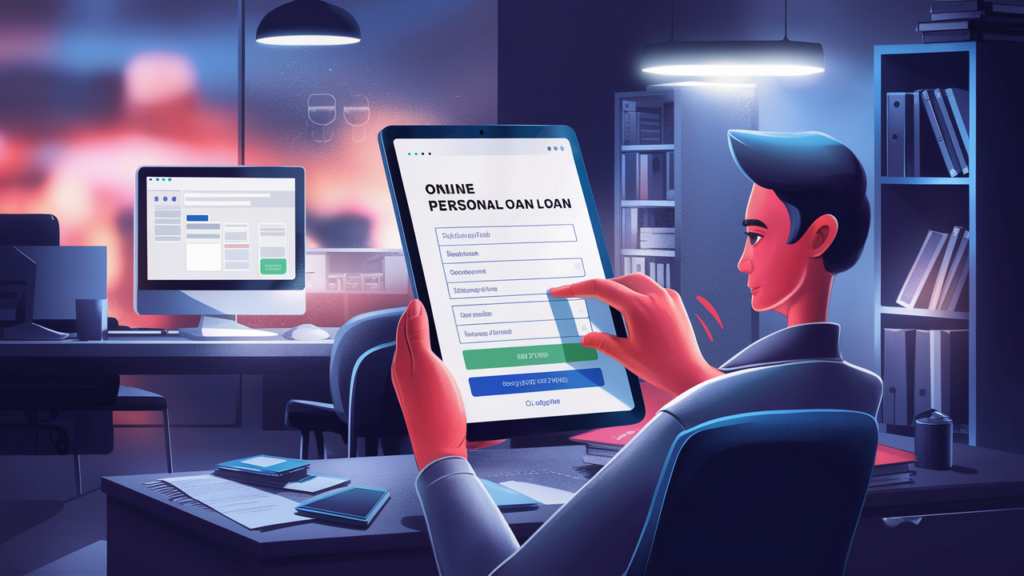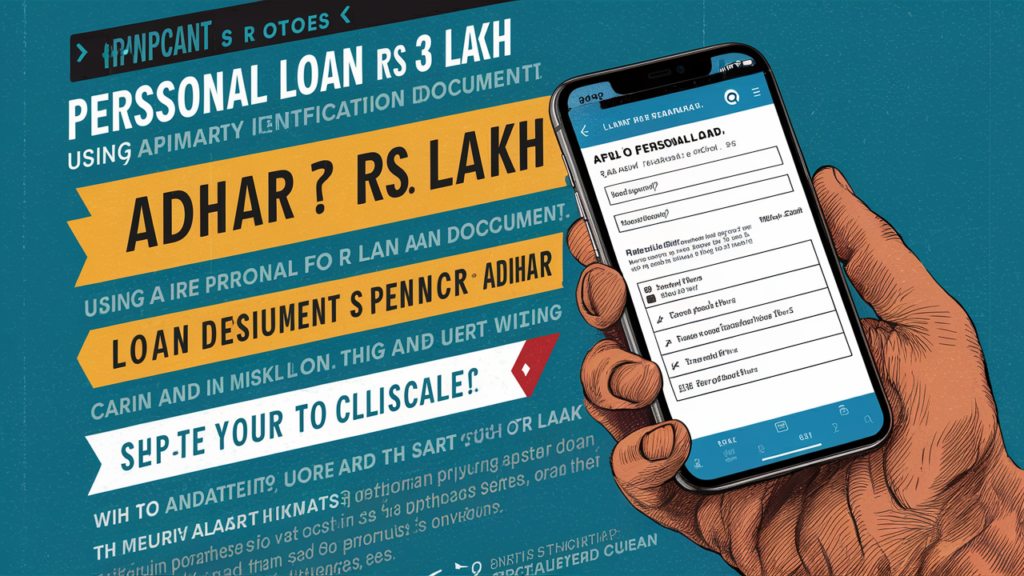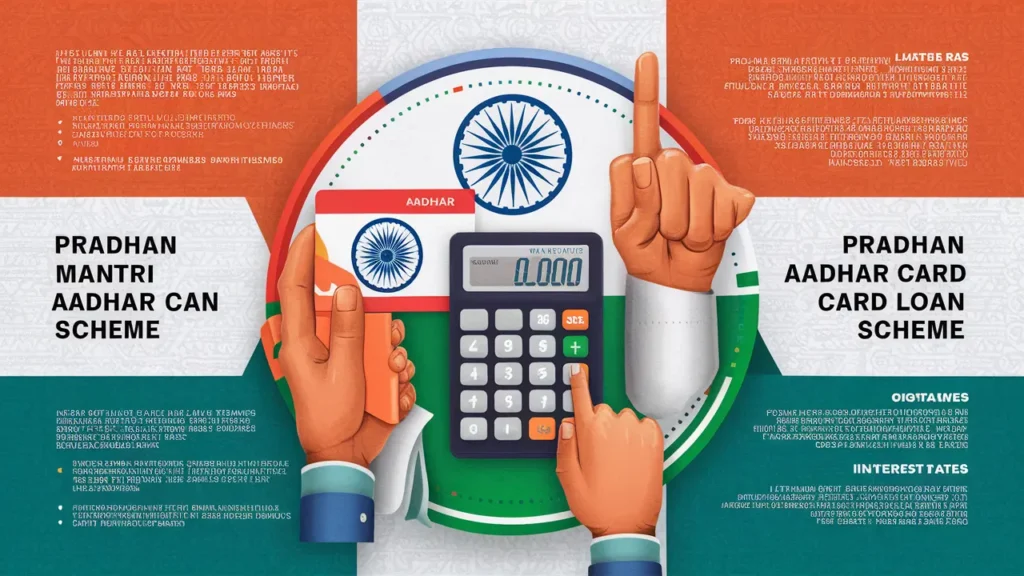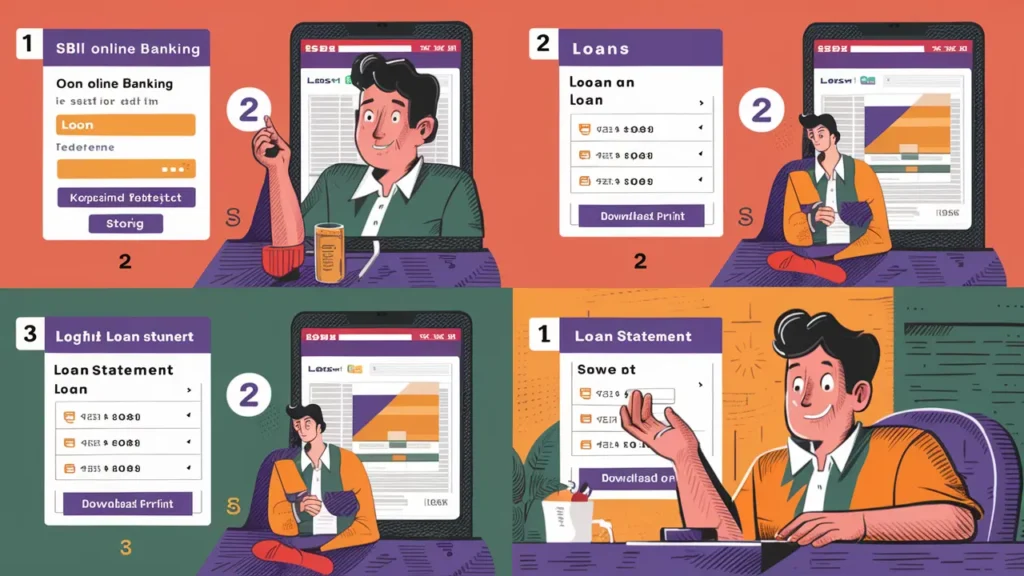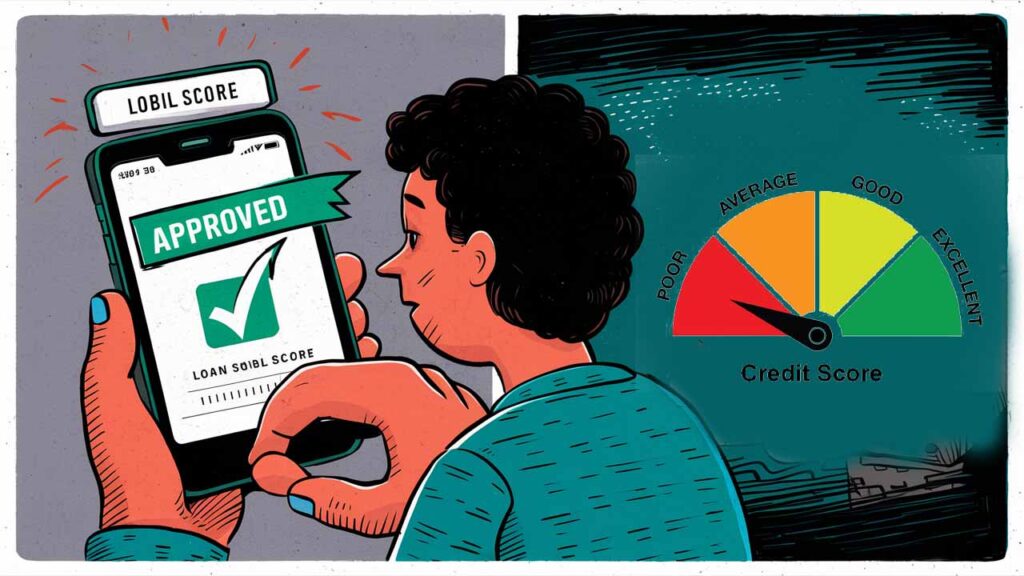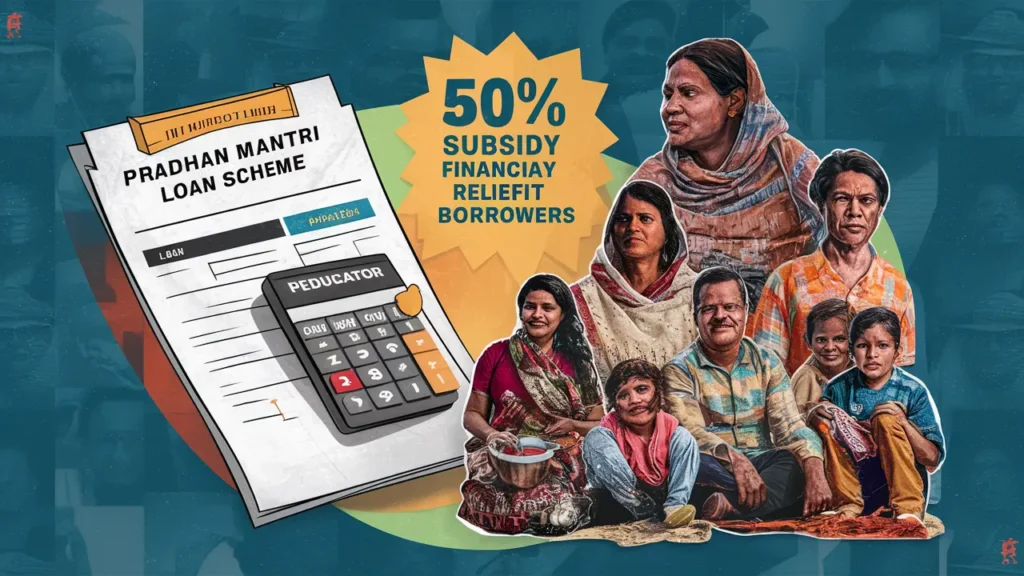Summary
Personal finance problems could complicate salaried people’s repayment for personal loans. Settling a personal loan makes debtors negotiate for less than what is owed when the loan balance seals a deal. When you continuously struggle for repayment of EMIs, your debt encroaches into daily spending, or you are vulnerable to default or litigation, this is an option. A settled loan, however, lowers your credit rating as it indicates that you did not repay in full. You need to approach such alternatives as restructuring your loan, applying for a moratorium, or balance transfers, reducing repayments without hurting your credit first. Timely approach and communication on your part, fair lump sum settlement negotiations, agreement in writing, and cautious planning after settlement will enable you to settle well. Future personal finance well-being depends upon having an eye for your credit and repairing it through good conduct.
Introduction
Personal loans are difficult to manage, especially for salaried individuals faced with unforeseen financial conditions. Repayment of monthly EMIs becomes difficult at times, and personal loan settlement comes into the picture. Settlement of a personal loan means settling your debt amount for less than what you owe, thereby shutting down the loan account and preventing further serious issues like legal proceedings or defaults. But deciding when and how much to repay a loan should be done carefully because it will affect your credit score and your future lending opportunities. This article demystifies for salaried individuals when to consider debt settlement, what should be considered, alternatives for settlement, and a sound approach for handling it. The right approach will enable you to manage your debt and secure your financial future.
When Should Salaried Employees Consider Personal Loan Settlement?
Maintaining a personal loan can be challenging, especially for compensated employees handling unanticipated financial difficulties. Knowing when to pay off personal loans for salaried workers will help you to maintain good credit and avoid long-term financial stress.
This article guides salaried individuals in sensible behaviour and debt settlement decisions.
What is Personal Loan Settlement?
Closing your loan account involves arranging with your lender to pay less than the total outstanding debt, therefore settling a personal loan. Usually, it comes from your failure to make regular EMI payments.
Signs That Indicate It’s Time to Consider Settlement
There are specific indicators that show paid employees would be better off paying off a personal debt.
Consistent Difficulty in Paying EMIs
Should you find it difficult to keep up with monthly payments despite efforts at budgeting or skip multiple E MI payments, it could signal a more severe issue.
Increased Debt Burden Affecting Daily Expenses
When loan payments start to compromise your ability to meet other financial responsibilities or basic living needs, it is warning indication.
Risk of Loan Default or Legal Action
If you run the risk the loan could turn into a non-performing asset (NPA) or the lender commences legal recovery, settlement becomes a preferable choice.
Factors Salaried Workers Should Review Before Decisions Are Made
Before deciding on a settlement, salaried persons should give some careful thought to ensure it is a suitable financial decision.
Impact on Credit Score and Loan Eligibility
Negotiating a loan shows on your credit report that you did not pay back the entire balance. This could risk your future loan eligibility and lower your credit score.
Timing Matters
Early settlement could prevent you from considering alternative options such deferral or restructuring. On the other side, delaying settlement until your credit falls more could impede recovery.
Financial Capacity to Negotiate a Settlement Amount
Specify exactly your current financial condition. Calculate the most you could realistically be able to pay back the loan in lump sum.
Assess Your Savings and Emergency Funds
Use your emergency funds very wisely. A lump sum settlement, if poorly considered, might tax your resources.
Alternatives to Settlement for Salaried Employees
Before deciding on a settlement, salaried employees can look at choices that might be less damaging to their credit.
Loan Restructuring or Moratorium
Ask your lender about a loan term modification or temporary payment holiday. These decisions could lower your E MI load without sacrificing your credit history.
Balance Transfer
Moving your loan to a lender offering either lower interest rates or better terms will help with repaying if your credit score is good.
How One Should Approach Personal Loan Settlement Wisely
These rules will help you protect your rights should your best course of action be a settlement.
Communicate Early with Your Lender
If repayment issues arise early on, contact your lender. Early on, communication could open doors for negotiations.
Negotiate a Fair Settlement Amount
Describe your financial situation and offer a reasonable lump sum payment you could be able to make right now. Lenders could take a smaller payment instead of implementing drawn-out recovery plans to speed down debt repayment.
Get the Settlement Agreement in Writing
Once agreed, be sure you have an appropriate settlement letter or agreement stating the loan account closed and no more owing. These records protect you against later claims.
Plan Your Finances Post-Settlement
Loan settlement lowers your credit score even when it helps you clear debt. Consistent financial behaviour, timely bill payment, and responsible borrowing help you begin to repair your credit.
Impact of Personal Loan Settlement on Credit Score for Salaried Employees
Many salaried employees who find it difficult to pay back their loans give personal loan settlement serious consideration. Though it could help with debt, it has disadvantages largely connected to your credit score. Making prudent financial decisions requires knowledge of how loan settlement affects a credit score for salaried employees.
What Happens to Your Credit Score After Loan Settlement?
When you pay off a personal loan, you pay back less than the entire outstanding debt. Unlike a fully paid account, the lender records this as a settled account to credit bureaus.
Marked as “Settled” or “Partial Payment”
Your debt status changes from being listed “paid in full” to “settled,” or “partially paid.” Systems of credit view this condition as negative since it indicates that the loan was not paid back as agreed upon.
Immediate Drop in Credit Score
Most particularly in case of late or missed payments in the settlement, credit score’s effect would be quite considerable. Your credit rating can be affected as the settled debt shows you did not honor your first commitments.
Why is the Credit Score Impact Important for Salaried Employees?
A credit rating affects your future ability to acquire credit, credit cards, or even leases. A solid credit rating for working professionals is crucial for financial flexibility and stability.
The impact on eligibility for future loans
A lower credit rating due to settlement lowers your creditworthiness for new loans or raises the interest rates from lenders. Banks and financial organisations perceive settled loans as higher in risk.
Impact on Creditworthiness for Other Financial Products
Except for loans, lenders will factor your credit score when issuing home loans, car loans, or credit cards. A settled loan in your past will temporarily limit these possibilities.
Factors Affecting the Extent of Credit Score Impact
Credit scores respond variously based upon the debt settlement technique employed. Some elements dictate how much harm is done.
Timing of Settlement
Early repayment before late payments serves further to keep the adverse impact low. Conversely, homes financed after defaults or delays register for a visibly lower credit rating.
Overall credit history
A single delinquent payment will not do as much harm if you have a history of making timely payments and good credit maintenance. Lenders consider your overall credit profile and credit scores.
Amount Settled and Outstanding Amount
Your credit takes a bigger hit for every difference between a settled amount and the original amount put up for the loan. More write-offs equal increased peril for creditors.
How long does its negative effect last?
Your report will have “settled” for up to seven years following settlement. Your score lowers with time as you develop positive credit behaviour.
Gradual Recovery Possible
If you keep making timely credit card and loan repayments, your credit rating will gradually go up. Persistence and sustained financial discipline are important.
What Salaried Employees Can Do To Avoid Credit Damage
Though paid staff can act particularly to cut down the damage and restore credit, debt settlement lowers your credit rating.
Make timely payments for all credit accounts.
Pay current credit card dues, all present EMIs, and other obligations at present. This shows lenders improving your financial condition.
Make good use of credit. Going Forward If you currently lack active credit, get a small personal loan or secured credit card in order to prove loan repayment capability.
Monitor Your Credit Report Regularly
Verify your credit record for mistakes on your settled debt. Fix it immediately to avoid unnecessary damage to your score.
Rebuild Your Credit Over Time
If you stick to good financial practices on an ongoing basis—paying down debt, not incurring further defaults, and budgeting—your credit rating will increase.
Communicate proactively with future lenders.
Be honest when applying for new loans about your history of settlement and how you worked towards rebuilding your credit record. Some lenders may grant fair-term loans based on their principles of honesty.
Step-by-Step Process to Settle Personal Loans for Salaried Individuals
For salaried workers having trouble making their payments, personal loan settlement can be a good fix. Knowing the salaried employee’s loan settlement method will enable you to approach lenders with confidence and handle your money more wisely.
Understanding Personal Loan Settlement
Settlement of a personal loan is negotiating with your lender to pay less than the whole outstanding loan balance. Usually explored when conventional EMIs become challenging is this alternative.
Step One: Evaluate Your Financial Situation
Salaried staff members must closely check their financial situation before beginning the settlement process.
Assess Outstanding Loan Amount and Payment Capacity
Find out exactly how much you owe and decide what lump sum you may fairly pay as a settlement.
Step Two: Contact Your Lender Early
You really should be proactive in your contacts with your lender or bank.
Describe Your Difficulties in Finances.
Tell the lender your reality, straightforwardly. More flexible options can result from early conversation.
Step Three: Request a Settlement Offer
Inquire of the lender whether they would be ready to discuss a settlement figure. Most banks have particular rules regarding settlement matters.
Understand the Terms and Conditions
Verify your complete understanding of the suggested settlement amount, payment schedule, and any effects on your credit record.
Step Four: Negotiate the Settlement Amount
The process of settling calls relies heavily on negotiations.
Offer a Reasonable Lump Sum
Provide a figure that the lender will find reasonable, as well as inside your means. Get ready for some backtracking.
Step Five: Get the Agreement in Writing
Once both sides decide on the settlement value, make sure you get an official settlement agreement.
Verify the Details
Make sure the document precisely specifies the settlement amount, payment dates, and assurance that the loan will be closed following payment.
Step Six: Make the Settlement Payment
Pay the agreed lump sum within the designated period to finish the settling process.
Step Seven: Follow Up for Confirmation
Following payment, ask the lender for a written confirmation declaring the loan account closed and settled.
Check Your Credit Report
Make sure your credit report shows the loan as “settled” and that no outstanding debt remains.
Tips to Negotiate Personal Loan Settlement as a Salaried Employee
When monthly EMI payments become difficult, paid workers may be wise in negotiating a personal loan settlement to control debt. Knowing how to negotiate personal loan settlements for salaried workers can greatly lower your outstanding debt and prevent legal issues.
This article provides doable advice for people to negotiate better conditions of settlement and safeguard their financial future.
Understand Your Financial Situation Clearly
Review your present financial situation before starting any negotiation.
Review Your Outstanding Loan and Income
Determine your overall outstanding debt balance and then match it to your present income and spending. This clarifies your reasonable offer as a settlement amount’s value.
Evaluate Your Ability to Pay a Lump Sum
Generally speaking, loan settlement calls for a lump sum payment. Tell yourself straight forwardly how much you can save aside without adding more financial burden.
Communicate Early and Honestly with Your Lender
Negotiating effectively requires proactive communication.
Contact Your Lender as Soon as Possible
Don’t wait till your loan account goes non-performing or gets overdue. Early contact increases possibilities of favorable terms and indicates readiness to solve the problem.
Explain Your Financial Challenges
Tell others straight forwardly why you find it difficult to repay. Lenders value integrity and typically are more accommodating when borrowers show a real need.
Collect All Required Documents and Evidence
The lenders will require documentation while negotiating
Prepare Salary Slips and Bank Statements
These documents reflect your finances and income. Presenting them serves you well when you negotiate.
Reveal Any Applicable Financial Distress
Your medical bills, letters stating you lost your job, or other proof of hardship will aid in making your case for settlement.
Know Your Rights and Lender Policies
Having an upper hand if you know your rights as a borrower and the policies for settlement from the lender
Study the Settlement Guidelines for Banks
Most banks, based on borrower traits, either offer settlement options or recommendations. Having such knowledge allows you to frame your negotiations accordingly.
Be mindful of legal and regulatory safeguards.
Some laws protect against unfair recovery methods for debtors. Having such knowledge will enable you not to swallow foul phrases.s
Suggest a Reasonable Settlement Amount
Sending a reasonable amount will enhance your chances for acceptance.
Base Your Offer on Your Financial Analysis
Suggest an amount in lump sum from your salary and budget which you could pay either immediately or within a certain time frame.
Be Receptive To Counteroffers
Lenders may suggest an alternate amount or repayment schedule. Remain flexible but firm about your affordable range.
Have the Settlement Agreement in Writing
Once the terms are agreed upon, list everything.
Create a formal settlement letter.
The letter should reflect the agreed-upon settlement amount, payment terms, and guarantee that the loan will be noted as settled.
Read the Document Carefully Before Signing
Search to identify vague clauses, upcoming obligations, or unstated fees.
Make the Settlement Payment Promptly
Get settled with timely payment.
Utilise Traceable Payment Modes
A clear payment trail results from bank drafts or transfers. Try to avoid cash calls without receipts.
Keep Payment Proofs Secure
Billings or receipts protect against later reversals.
Monitor Your Credit Report After Settlement
The settlement of loans affects your credit score, so pay close attention to modifications.
Check the Loan Status Update
Make sure your credit record shows debt as “closed” or “settled” after payment.
Dispute Any Inaccurate Information
If the report does not show a logical settlement, go straight to the credit bureau.
Plan for Financial Recovery following the settlement
While paying your bills comes second to restoring your credit, settling does.
Maintain Current Payments on Open Accounts
Make timely payments on all other bills, including credit card accounts and loans, to establish economic responsibility.
Don’t Get New Loans Until Credit Repairs
Try your best to improve your savings and planning to prevent defaults down the road.
Conclusion
For people battling with obligation instalments, individual credit settlement is a satisfactory alternative. By permitting you to pay less than the complete advance sum, it gives financial push help. Be that as it may, it’s critical to note that advance settlement impacts your credit score and influences future borrowing. Recently, consider granting your monetary situation careful thought and explore choices, including debt restructuring or balance transfers. Early, open contact with your loan specialist will assist you in getting superior conditions of settlement conditions. Get the consent in composing continuously, and handle your money after settlement to recoup credit. Using deliberate planning and judicious money management, you’ll overcome financial obligation issues and endeavour towards a much better financial future.
FAQ’s
Ans: If you are unable to pay EMIs, personal loan settlement—settling for less than what you owe—helps you clear your loan entirely.
Ans: It may be time to consider settlement if you struggle to pay EMIs every month; debt affects daily expenses or you face the risk of legal proceedings.
Ans: Since it shows you did not pay the full amount as agreed, loan settlement will lower your credit score and make future loans more difficult to get.
Ans: Yes, without damaging your credit like a settlement, options such as loan restructuring, moratorium, or balance transfer can reduce EMIs.



